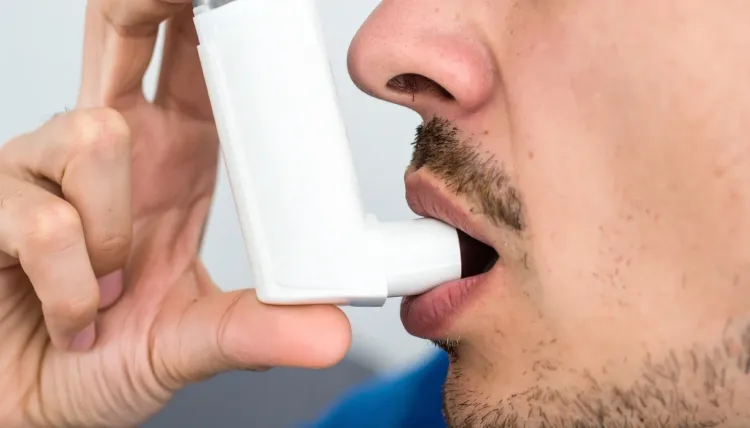Do Inflammatory Cells Persist in Blood After Severe Asthma Treatment?

Synopsis
Key Takeaways
- Biologics improve the lives of severe asthma patients.
- Certain inflammatory immune cells persist after treatment.
- Inflammation may return when treatment stops.
- Long-term effects of biologics are still largely unknown.
- Further research is needed on immune cell behavior in lung tissue.
New Delhi, June 26 (NationPress) While biological drugs or biologics have significantly enhanced the quality of life for many individuals suffering from severe asthma, a recent study reveals that certain immune cells with high inflammatory potential remain present even after treatment has concluded.
The discoveries may shed light on why airway inflammation often resurfaces immediately after treatment cessation, according to researchers at Karolinska Institutet in Sweden.
In a study featured in the scientific journal Allergy, the research team investigated the behavior of immune cells in patients undergoing biologic treatment, which has become a crucial aspect in managing severe asthma.
By examining blood samples from 40 patients before and during their treatment, they identified that rather than diminishing, certain immune cell types that are instrumental in asthma-related inflammation actually increased.
“This indicates that biologics may not fully address the underlying issue, despite their benefits during treatment,” noted Jenny Mjösberg, professor of tissue immunology at the Department of Medicine in Huddinge at Karolinska Institutet.
“Continuous treatment might be essential for maintaining control over the disease,” she added.
The researchers employed sophisticated techniques, including flow cytometry and single-cell sequencing, to assess the characteristics and functions of these immune cells.
They found that levels of inflammatory cells in the blood increased rather than decreased.
“This could clarify why airway inflammation frequently re-emerges when treatment is reduced or stopped. Understanding the long-term immunological implications of these medications is vital,” said Lorenz Wirth, a doctoral student at Karolinska.
While biologics such as mepolizumab and dupilumab assist many patients in managing their symptoms effectively, the long-term effects remain largely unknown, given that these medications have been prescribed for less than a decade.
The research team plans to further analyze samples from patients with extended treatment histories and to investigate lung tissue to observe the impact of immune cells within the airways.







